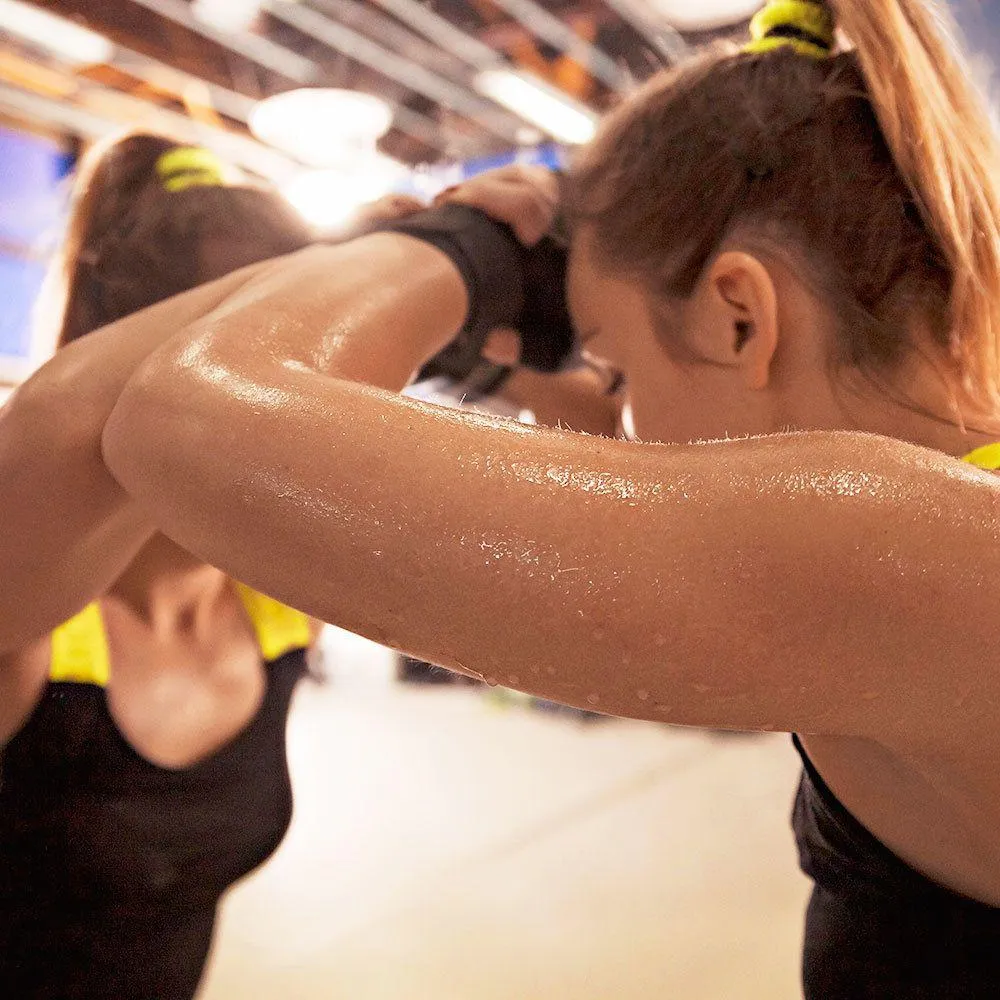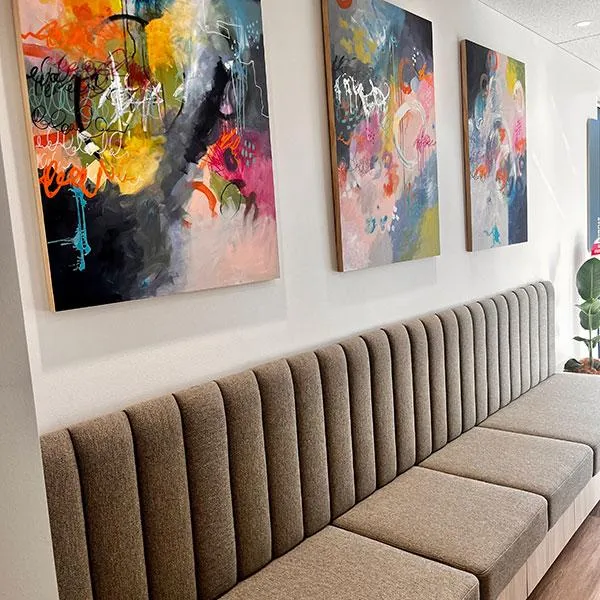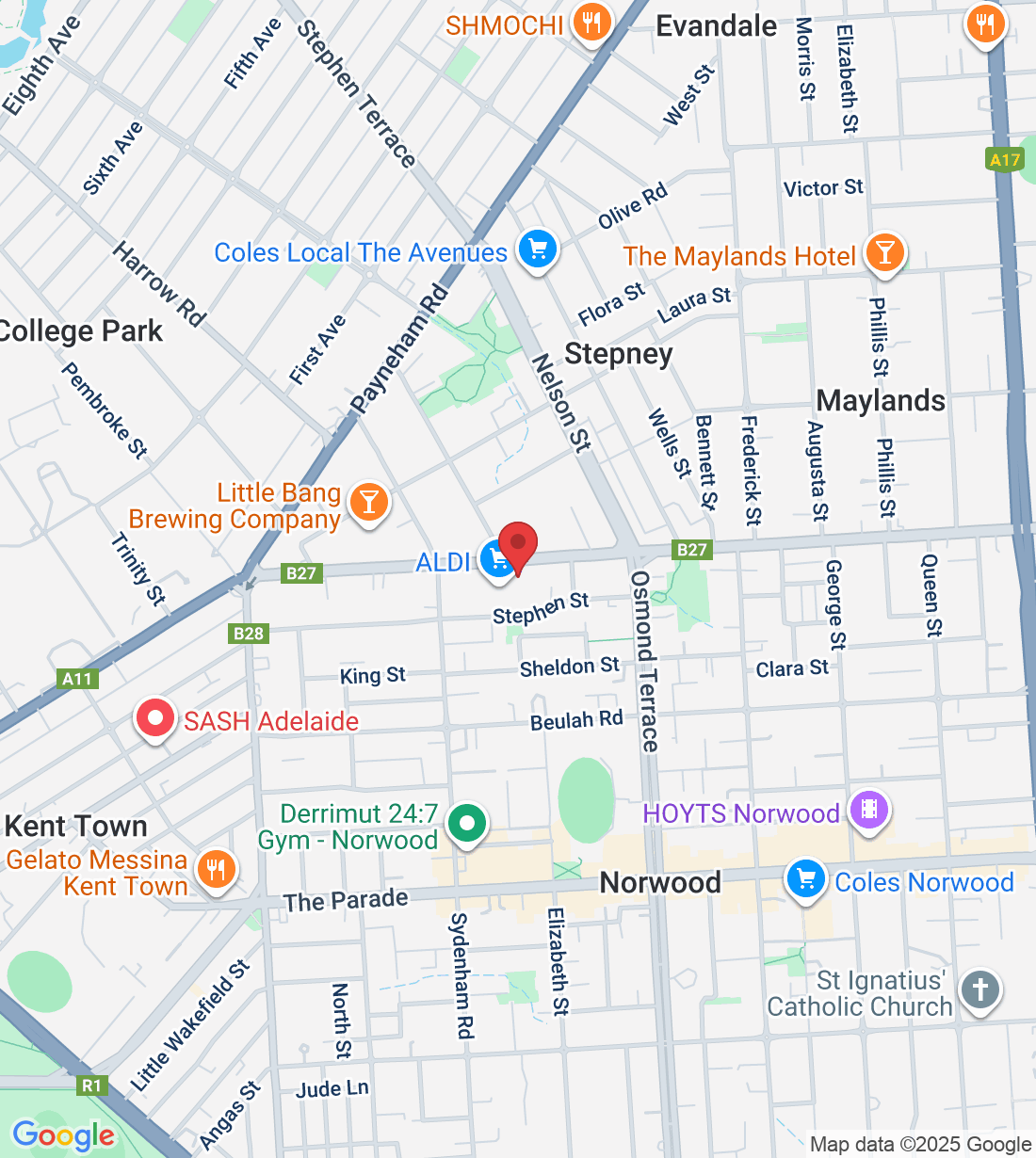
Breaking the Sweat Myth: Why Intense Exercise Might Not be the Stress Relief You Need
By Physio Thomas
As many of you know I lead our StrongFit class on a Friday morning - this class is designed to help people feel comfortable lifting heavier weights - the type you see in 'that' area of the gym. StrongFit is a really successful class primarily made up of women.
Recently, at the end of a class, I asked the participants why they exercised. They mentioned to feel stronger - to feel more capable with lifts in a way they hadn’t felt in decades; to feel safer - to move about the day, lift up or play with their children without injuring themselves; and, resoundingly;
"for stress relief - to interrupt their never-ending commitments of work and family with a bit of self-care and sweat."
The last reason makes sense when you consider the main clientele of our gym classes: women - women who have spent the last decade-or-two prioritising their children, partners, work or all-of-the-above - women who are possibly premenopausal - women who are finally at the stage of their lives where they can squeeze an hour of time not only simply for themselves, but prioritising themselves - God forbid.
And high-intense exercise, fitting as much as you can in a short period of time, is productive, and if there is one thing women have developed over balancing that all-of-the-above, it’s productivity. The benefits of exercise - strengthening, injury prevention, hormonal regulation, bone health - combined with the advantages of stress relief - improved resilience, sleep, overall happiness - and it’s a win-win, no?
However, in this blog, I will argue that intense exercise may not be as stress-relieving as you think. To do this, I will describe the similarities between physical and emotional stress, explain how intense exercise may be counterproductive, and provide some practical solutions.
The Similarity of Physical and Emotional Stress
My argument is that an intense exercise class may not be productive for stress relief as it just replaces one stress (the emotional) with another (the physical). To understand this, let's consider the substantial overlap in physical and emotional stress. They both are:
● Affected by psychology and mood, both past and present
● Moderated by the brain and pathways of the spine (the Central Nervous System)
● Influenced by your surrounding environment
● Are both signals that have been developed through evolution that help self-regulate and self-protect
Furthermore, physical and emotional stress have similar consequences on the body. Consider the fight or flight mechanism - when you see a bear in the woods, what happens? Subconsciously, you hold onto your breath, your shoulders lift and your stomach grips…and how do people present after years of chronic stress? Shallow breathing patterns, tense shoulders and digestive or pelvic distress.
Lastly, both physical and emotional stress employ the same defence mechanism for recovery. As such, anti-inflammatories are shown to be effective for both physical and emotional pain.
So, there is substantial overlap in physical and emotional stress. This means that an increase of one type of stress affects the other: for example, people who are lonely are more likely to articulate higher levels of pain, and people with high pain sensitivity are more likely to feel distressed.
So, let’s revisit our main clientele: the stressed woman. Is the best way to deal with emotional stress - the burdens of work, family, health - to add physical stress on top? From an emotionally wound-up state at home to a physically wound-up state in the gym? What about this is actually relieving?
But it feels good, and isn’t that stress-relieving?
Yes, I’ve spewed some technical mumbo-jumbo, but it feels great to push yourself. There is no denying that the ladies after the class feel relieved (that it’s over), and there is an unmistakable pride and accomplishment that fills the room. And of course there should be - most have reached personal bests in lifts they never thought they’d do again, and they’re dealing with their previous back, neck, or pelvic floor-related pain or stress incontinence in a productive and evidential manner. And there’s also the argument of catharsis - that the sweating of high-intense exercise is a purge or detox of pent-up emotions.
So, this can be stress-relieving. And if that works for you, great! However, if you’re finding yourself consistently injured, not performing your best, and constantly wound up, tight or tense, it could be because you are merely replacing one stressor with another, and it may be best to consider ways to genuinely relieve stress instead of simply overriding it.
De-stressing techniques would include slow, smell-the-roses walks; meditation, mindfulness or deep-breathing; diarising; getting a calming massage, acupuncture or physio treatment; or finding more personalised techniques and management strategies through seeing a counsellor or psychologist. These are all shown to reduce stress without tensing the body in other ways, resulting in improved mental health, resilience, and clear physical effects on cortisol, blood pressure and heart rate.
How can we implement this?
These de-stressing techniques aren’t hard to do - you know how to book a massage or go walk around the block - but, ha, good luck telling a woman with two teenage kids, a job and hot flushes to ”relax;” I’ve learnt after too many wooden spoons and slippers on my wrist to be more tactful.
So, it’s the implementation that is the challenge.
It’s telling a woman who has spent her whole adulthood looking after others to start looking after herself. It’s convincing someone who’s been hyperproductive her whole life that there is benefit in slowing down.
But, may I ask, when was actually the last time you wound down? Purposefully, or with intent? When was the last time you let yourself rest or recover?
If you haven’t because you’re too busy, then I’ll remind you of the benefits of it.
If it’s because you want to be strong for your family, consider how useful this could be not only for you, but for your family and kids who can view you as a role model for healthier mental practices. If you haven’t because you don’t think you need it, then I’ll refer you to my article on stoicism and mental health.
So, I want to challenge all of you reading this to spend some time today prioritising some stress relief. Enjoy prattling in a diary for ten minutes, go get that massage, or follow a simple Yin-yoga video online. You may feel immediate benefits - wonderful - if not, you will have at least allowed yourself to prioritise yourself for a brief moment, and there is certainly benefit in that.
Conclusion
Women are commonly stressed from their continued sacrifice and hyperproductivity.
While high-intense exercise seems appealing as a stress relief, the biological overlap of physical and emotional stresses means it can be counterproductive as a de-stressor. While specific stress-relieving techniques may be simple to do in the short-term, their implementation will require a shift in mentality of not only what it means to unwind, and the benefits of unwinding, but how to prioritise yourself after years of prioritising others.
I’m a lucky recipient of all my mother’s sacrifices to raise someone successful, driven, and (mildly) obnoxious. And like it is hard to make these sacrifices, it’s also hard to start changing your life to prioritise yourself after decades of prioritising others. However, if you can’t start properly looking after yourself, maybe it is time to recognise how long you can afford to go without this.
Ask a question of Vital Core Physiotherapy
Fill in the form to request a Call From Our Team
One of our team will call you for FREE and answer any questions or concerns you may have about your condition
© 2023 Vital Core Physiotherapy





